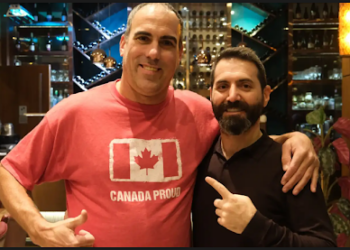Engaging in the long-term legacy of creating social and economic change, Tej Kohli and Ruit Foundation is marking a global upliftment by curing untreated cataract blindness in developing countries.
For a better future, Tej Kohli and Ruit Foundation is aligned with the UN’s Sustainable Development Goal (SDG) to eradicate poverty and is also a part of the #2030InSight mission to eliminate avoidable blindness.
More About the #2030InSight Mission
‘#2030InSight’ is a global initiative introduced by The International Agency for the Prevention of Blindness (IAPB), to end avoidable sight loss across the world by 2030. This aims to achieve the agenda of the UN SDG by 2030 and hence, is an essential component of the program.
Tej Kohli and Ruit Foundation aims to contribute wholeheartedly to the mission and is striving to not only cure blindness but also end extreme poverty. This plan for the ongoing decade is on the top of the agenda for Tej Kohli and Ruit Foundation, through which it aims to make ‘VISION’ a fundamental, social, economic, and developmental right.
Tej Kohli and Ruit Foundation’s Pledge for Vision
Tej Kohli and Ruit Foundation intends to cure blindness, for which it is establishing community eye hospitals in the world’s poorest countries. It is widening the scope of the microsurgical camps across Nepal, India, Indonesia, Bhutan, Myanmar, Bangladesh, North Korea, Afghanistan, Rwanda, Tanzania, Lebanon, and Syria.
Tej Kohli and Ruit Foundation on Preventable Blindness
Low literacy rates and lack of education bring people to the backend when it comes to preventable blindness. This leads to their economic disadvantage as they have to shut down their economic activities and succumb to extreme poverty.
Also, preventable blindness is prominent among women, making up 64.5% of cataract cases, compared to 35.5% of cases in men. Women, usually treated as second-class citizens, are given least priority when it comes to healthcare, as usually families would not invest in their surgeries.
Thus, Tej Kohli and Ruit Foundation is actively working towards providing quality access to cataract surgeries, aiming to put an end to extreme poverty and bring gender parity at the same time, in the developing world.
Approach to Empowering Vision
Tej Kohli and Ruit Foundation sets up screening camps, at which they mainly focus on reaching out to women in need of a cure for their preventable blindness. It conducts counseling with the help of local health partners to encourage people to take up cataract surgeries.
Outreach camps are also organized in remote areas to make sure that women, in particular, get access to cataract surgeries without having to travel long. More than a hundred such camps have been organized so far to help those in need.
Apart from aligning with the global mission to end blindness by 2030, Tej Kohli and Ruit Foundation has marked an agenda to treat the childhood blindness of at least 1000 children in Nepal by 2026.
Barriers to Uptaking Surgeries
The #2030InSight Vision has the following main pillars:
- Awareness raising
- Health system strengthening
- Integration
- Innovation
However, worldwide, there are several hurdles that hamper the treatment of the ones in need. Some of the reasons that prevent the treatment of preventable blindness are:
- Lack of Awareness: Lack of education and low literacy rates have led to people’s unawareness of their underlying disease. Unawareness is the prime cause of perpetual blindness as it is not cured at the right time. Thus, counseling sessions help in raising awareness among local communities.
- Limited Accessibility: Limited eye care hospitals in developing worlds have restricted the accessibility of those in need of treatments. Outreach camps are a revolutionary way of making treatment accessible to all, even in the far-reaching remote places of the developing world.
- Low Affordability: Economic constraints among families tend to pull them out of surgeries, or not appear for one at all. Women, especially, are not considered for the surgeries by the families as not being the breadwinners. Thus, free-of-cost treatments by Tej Kohli and Ruit Foundation are making treatments affordable for all.
Thus, bridging the economic gap and achieving the goal is necessary to build the social, developmental, and economic aspects and create a better future.
Cataracts: The Leading Cause of Preventable Blindness
Cataracts cause clouding of the eye lenses that if untreated can lead to blindness. Aging, diabetes, extreme exposure to sun, smoking, obesity, high blood pressure, inflammation, etc. are some of the major causes of cataracts.
Fortunately, 80% of visual impairments caused by cataracts are curable and thus with combined efforts, they can be treated leading to the improvement of social and economic prospects of the developing communities.
Poverty and preventable blindness are related and thus treating the vision of the needy can improve their economic prospects, thereby, leading to their upliftment. Vision 2030 is thus directly related to the UN SDGs’ approach on mitigating extreme poverty.
Way forward
The #2030InSight mission aims to eradicate avoidable blindness for all to ensure their full potential, establish accessible and affordable eye care, and end the social stigma surrounding blindness. Tej Kohli and Ruit Foundation is working with its full potential to achieve the end goal and give light to the eyes of those in need.







